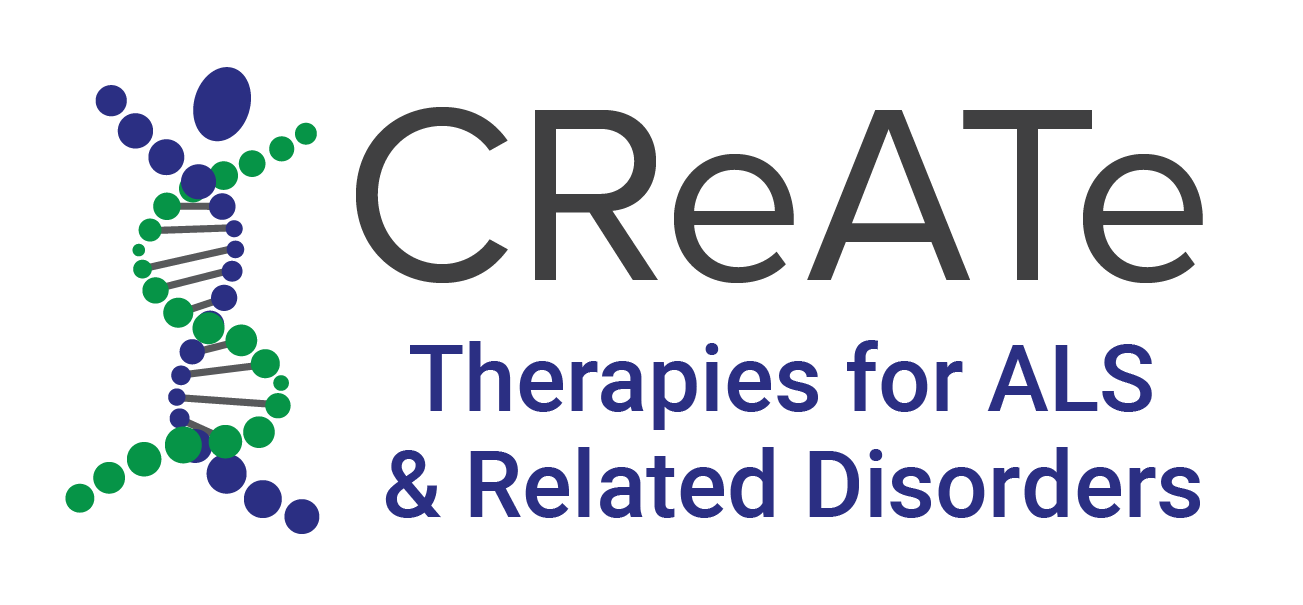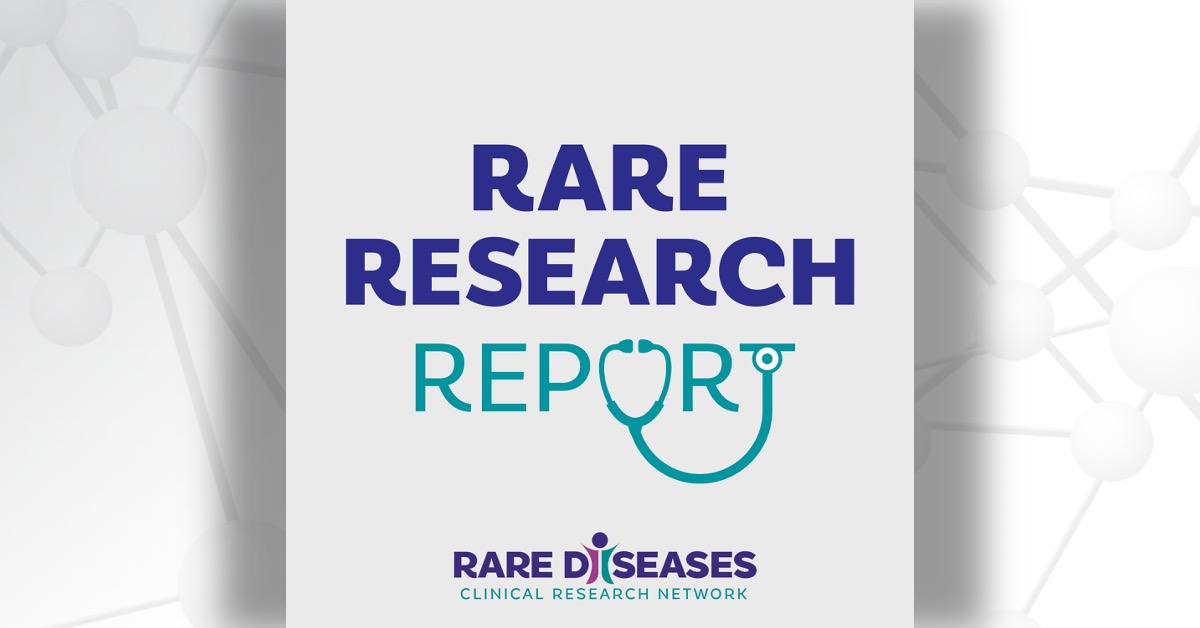Each month, we share summaries of recent Rare Diseases Clinical Research Network (RDCRN) grant-funded publications. Catch up on the latest RDCRN research below.
Jump to:
- Brittle Bone Disorders Consortium (BBDC)
- Clinical Research in ALS and Related Disorders for Therapeutic Development (CReATe) Consortium
- Consortium of Eosinophilic Gastrointestinal Disease Researchers (CEGIR)
- Dystonia Coalition (DC)
- Lysosomal Disease Network (LDN)
- Myasthenia Gravis Rare Disease Network (MGNet)
- Nephrotic Syndrome Study Network (NEPTUNE)
Listen to these summaries on the Rare Research Report podcast.
Brittle Bone Disorders Consortium (BBDC)
Examining Psychosocial Outcomes of Pain and Pain Management in Adults with Osteogenesis Imperfecta
Osteogenesis imperfecta (OI) is a genetic disorder characterized by bone fragility and fractures. Symptoms include short stature, dental abnormalities, hearing loss, scoliosis, and chronic pain. Although research on the functional outcomes of OI is growing, few studies are examining the psychosocial outcomes of pain in OI.
In this study, researchers interviewed 15 adults with OI to understand pain-related experiences. First, the team developed an interview guide focused on topics related to pain and mental health challenges. Next, the team interviewed participants and analyzed transcripts to identify common themes.
Results show that participants experience chronic and acute pain related to OI. Pharmacological treatments were the most common pain management approach. Participants reported negative pain outcomes, including limited daily functioning and activity participation, fear, anger, anxiety, depression, and difficulty concentrating. Participants also suggested that lack of physician and community knowledge on chronic pain in OI indirectly exacerbates both subjective pain intensity and outcomes. Authors note that this study provides valuable exploration of the unique pain experiences of adults with OI that may have implications for proactive management, treatment development, and clinician training.
Shepherd WS, Wiese AD, Cho HE, Rork WC, Baig MU, Kostick KM, Nguyen D, Carter EM; Members of the BBDC; Murali CN, Robinson ME, Schneider SC, Lee B, Sutton VR, Storch EA. Psychosocial Outcomes of Pain and Pain Management in Adults with Osteogenesis Imperfecta: A Qualitative Study. J Clin Psychol Med Settings. 2024 Jan 28. doi: 10.1007/s10880-023-09991-z. Epub ahead of print. PMID: 38281305.
Clinical Research in ALS and Related Disorders for Therapeutic Development (CReATe) Consortium
Temporal Course of Cognitive and Behavioral Changes in Motor Neuron Diseases
While people with motor neuron disease (MND) experience cognitive and behavioral dysfunction, the onset and progression of these symptoms, relative to motor manifestations, remains unclear. In this study, CReATe Consortium researchers explored changes in these deficits over time, as well as whether demographic, clinical, or genetic factors affected these symptoms.
A total of 237 participants were recruited through the consortium’s Phenotype-Genotype-Biomarker study. The Edinburgh Cognitive and Behavioural Amyotrophic Lateral Sclerosis Screen was administered every three to six months to assess ALS-specific cognitive issues, such as executive function, verbal fluency, and language; and ALS non-specific memory and visuospatial functions. Behavioral symptoms like apathy, disinhibition, loss of sympathy, perseveration, and hyperorality were reported through semi-structured interviews.
In this large observational study, cognitive impairment at initial assessment was infrequent, but when present, most often involved language and executive functions. These impairments were associated with lower educational levels, but not with the C9ORF72 repeat expansion. Researchers also found that cognition remained stable over time for most patients. However, a small subset showed decline on all cognitive domains, which was not entirely explained by the presence of a C9ORF72 repeat expansion. Behavioral symptoms in these MND participants were uncommon.
These findings raise questions about the timing of cognitive impairment in MND and whether it arises during early clinically manifest disease or even prior to motor manifestations. Authors note that study results highlight the need for future research to identify when these cognitive symptoms begin and what other factors are associated with decline over time.
McHutchison CA, Wuu J, McMillan CT, Rademakers R, Statland J, Wu G, Rampersaud E, Myers J, Hernandez JP, Abrahams S, Benatar M; CReATe Consortium. Temporal course of cognitive and behavioural changes in motor neuron diseases. J Neurol Neurosurg Psychiatry. 2023 Oct 12:jnnp-2023-331697. doi: 10.1136/jnnp-2023-331697. Epub ahead of print. PMID: 37827570.
Consortium of Eosinophilic Gastrointestinal Disease Researchers (CEGIR)
Investigating the Progression of Eosinophilic Esophagitis Variants Over Time
Eosinophilic esophagitis (EoE) is a disorder in which eosinophils (white blood cells of the immune system) build up in the esophagus (the tube that carries food from the mouth to the stomach), causing tissue damage. Recently, conditions with symptoms of esophageal dysfunction resembling EoE—but without high amounts of eosinophils in the esophagus—have been characterized as EoE variants. However, not much is known about the progression and severity of these variants.
In this study, researchers investigated the progression of EoE variants to EoE over time. The team assessed clinical, immuno-histological, and molecular features of 54 patients with EoE variants from six EoE centers. Findings were compared with features of EoE patients and healthy controls.
Results suggest a disease spectrum, based on transition from EoE variants to EoE. Authors note that genes associated with the progression to EoE may represent potential therapeutic targets early in the course of disease.
Greuter T, Straumann A, Fernandez-Marrero Y, Germic N, Hosseini A, Chanwangpong A, Yousefi S, Simon D, Collins MH, Bussmann C, Chehade M, Dellon ES, Furuta GT, Gonsalves N, Hirano I, Moawad FJ, Biedermann L, Safroneeva E, Schoepfer AM, Simon HU. A MULTICENTER LONG-TERM COHORT STUDY OF EOSINOPHILIC ESOPHAGITIS VARIANTS AND THEIR PROGRESSION TO EOE OVER TIME. Clin Transl Gastroenterol. 2024 Feb 6. doi: 10.14309/ctg.0000000000000664. Epub ahead of print. PMID: 38318864.
Dystonia Coalition (DC)
Conducting an Exploratory, Randomized, Double-Blind Clinical Trial of Dipraglurant for Blepharospasm
Blepharospasm is a type of dystonia (involuntary muscle twitching) which affects the muscles surrounding both eyes, causing forced blinking, eye irritation, and involuntary closure of the eyes. Although blepharospasm can be treated with a medication called botulinum toxin, outcomes are often inconsistent.
In this study, researchers conducted an exploratory, randomized, double-blind clinical trial of the oral drug dipraglurant for blepharospasm. Fifteen individuals with blepharospasm received either a placebo or dipraglurant. The team used multiple scales rated by clinicians or participants, digital video, and a wearable sensor to assess outcomes.
Results show that although dipraglurant was well tolerated in study participants, it did not produce an obvious benefit. Authors note that these results provide valuable information for planning future trials in blepharospasm.
Kilic-Berkmen G, Kim H, Chen D, Yeo CI, Dinasarapu AR, Scorr LM, Yeo WH, Peterson DA, Williams H, Ruby A, Mills R, Jinnah HA. An Exploratory, Randomized, Double-Blind Clinical Trial of Dipraglurant for Blepharospasm. Mov Disord. 2024 Feb 3. doi: 10.1002/mds.29734. Epub ahead of print. PMID: 38310362.
Lysosomal Disease Network (LDN)
CLN3 disease, also known as juvenile neuronal ceroid lipofuscinosis or Batten disease, is a type of lysosomal disorder that affects the nervous system beginning in childhood. Throughout adolescence and early adulthood, patients often experience progressive vision loss, motor dysfunction, and cognitive decline. This combination of symptoms can make it challenging to assess neurocognitive decline, highlighting the need for quantitative measures of brain function.
In this study, researchers assessed auditory sensory memory capabilities in individuals with CLN3 disease as a potential biomarker for neurocognitive decline. The team used a type of assessment called duration-evoked mismatch negativity (MMN)—which does not require participant engagement—to study early auditory processing, discrimination, and sensory memory in 21 individuals with CLN3 disease and 41 neurotypical controls.
Results reveal a decline in auditory sensory memory for duration as CLN3 disease progresses. Authors note that duration-evoked MMN may also serve as a sensitive measure of disease severity in other neurodevelopmental disorders.
Brima T, Freedman EG, Prinsloo KD, Augustine EF, Adams HR, Wang KH, Mink JW, Shaw LH, Mantel EP, Foxe JJ. Assessing the integrity of auditory sensory memory processing in CLN3 disease (Juvenile Neuronal Ceroid Lipofuscinosis (Batten disease)): an auditory evoked potential study of the duration-evoked mismatch negativity (MMN). J Neurodev Disord. 2024 Jan 6;16(1):3. doi: 10.1186/s11689-023-09515-8. PMID: 38183037; PMCID: PMC10770910.
Myasthenia Gravis Rare Disease Network (MGNet)
Providing a Comprehensive Overview of Molecular Therapies for Myasthenia Gravis
Myasthenia gravis (MG) is a rare neuromuscular disorder caused by an autoimmune response which blocks or damages acetylcholine receptors (AChRs) or muscle-specific kinase (MuSK) on muscles. To date, the standard therapy for MG has relied on acetylcholinesterase inhibitors, corticosteroids, and immunosuppressants. These therapies have shown good efficacy in improving MG-related symptoms in most individuals. However, they can also cause long-term adverse effects, and up to 15% of individuals with MG show limited or no response.
This review paper provides a comprehensive overview of emerging molecular therapies for MG. The author discusses progress in therapies associated with AChR antibodies and MuSK antibodies, including both challenges and opportunities.
The author notes that molecular therapies have the potential to revolutionize the MG treatment landscape, unlocking new potential for personalized medicine approaches.
Iorio R. Myasthenia gravis: the changing treatment landscape in the era of molecular therapies. Nat Rev Neurol. 2024 Feb;20(2):84-98. doi: 10.1038/s41582-023-00916-w. Epub 2024 Jan 8. PMID: 38191918.
Nephrotic Syndrome Study Network (NEPTUNE)
Describing the Design and Implementation of the NEPTUNE Match Study
Glomerular diseases are a group of rare conditions that affect kidney function by attacking the glomeruli, causing problems with the kidney’s filtering system. These diseases include focal segmental glomerular sclerosis (FSGS), minimal change disease, and membranous nephropathy. Glomerular diseases are associated with debilitating symptoms like swelling, protein leakage in urine, and loss of kidney function, sometimes leading to kidney failure. Despite the same diagnosis, response to treatment and disease progression can vary considerably, suggesting differences in disease biology. Few treatments are available, and the efficacy of approved treatments and potential drugs in clinical trials are diminished when patients with differing disease biology are grouped together.
In this paper, researchers describe the design and implementation of the NEPTUNE Match study. This study is designed to effectively communicate individualized reports to participants and their physicians about the molecular features of their disease state, informing decisions about the suitability of available clinical trials and treatment options. This also paves the way for patients with different rare diseases who share a common disease pathway to be treated using existing, approved drugs.
Authors note that NEPTUNE Match represents the first application of precision medicine in nephrology with the aim of developing targeted therapies and providing the right medication for each patient with primary glomerular disease.
Trachtman H, Desmond H, Williams AL, Mariani LH, Eddy S, Ju W, Barisoni L, Ascani HK, Uhlmann WR, Spino C, Holzman LB, Sedor JR, Gadegbeku C, Subramanian L, Lienczewski CC, Manieri T, Roberts SJ, Gipson DS, Kretzler M; NEPTUNE investigators. Rationale and design of the Nephrotic Syndrome Study Network (NEPTUNE) Match in glomerular diseases: designing the right trial for the right patient, today. Kidney Int. 2024 Feb;105(2):218-230. doi: 10.1016/j.kint.2023.11.018. PMID: 38245210.
The Rare Diseases Clinical Research Network (RDCRN) is funded by the National Institutes of Health (NIH) and led by the National Center for Advancing Translational Sciences (NCATS) through its Division of Rare Diseases Research Innovation (DRDRI). Now in its fourth five-year funding cycle, RDCRN is a partnership with funding and programmatic support provided by Institutes, Centers, and Offices across NIH, including the National Institute of Neurological Disorders and Stroke, the National Institute of Allergy and Infectious Diseases, the National Institute of Diabetes and Digestive and Kidney Diseases, the Eunice Kennedy Shriver National Institute of Child Health and Human Development, the National Institute of Arthritis and Musculoskeletal and Skin Diseases, the National Heart, Lung, and Blood Institute, the National Institute of Dental and Craniofacial Research, the National Institute of Mental Health, and the Office of Dietary Supplements.


